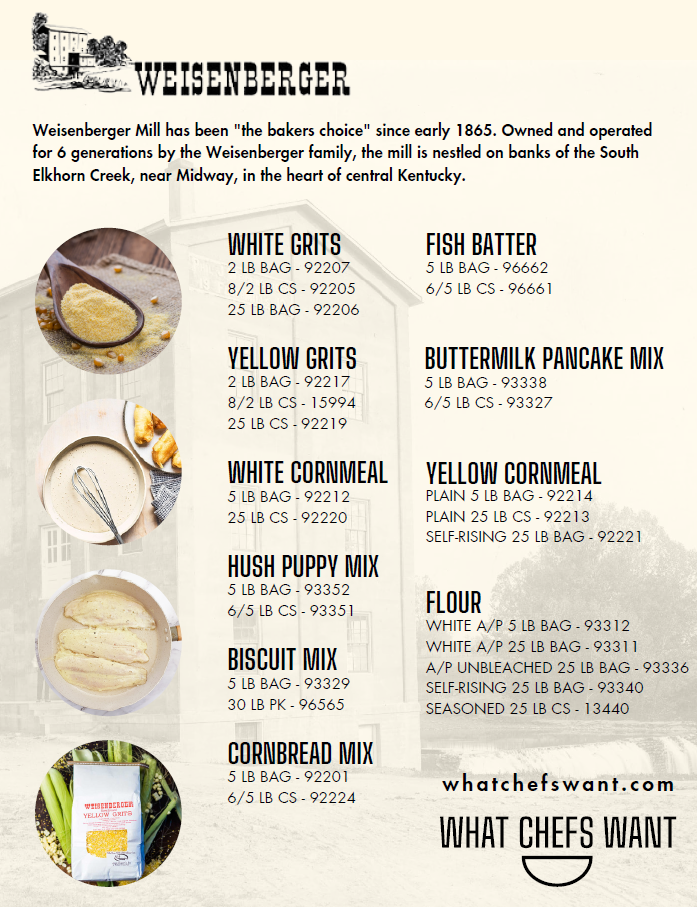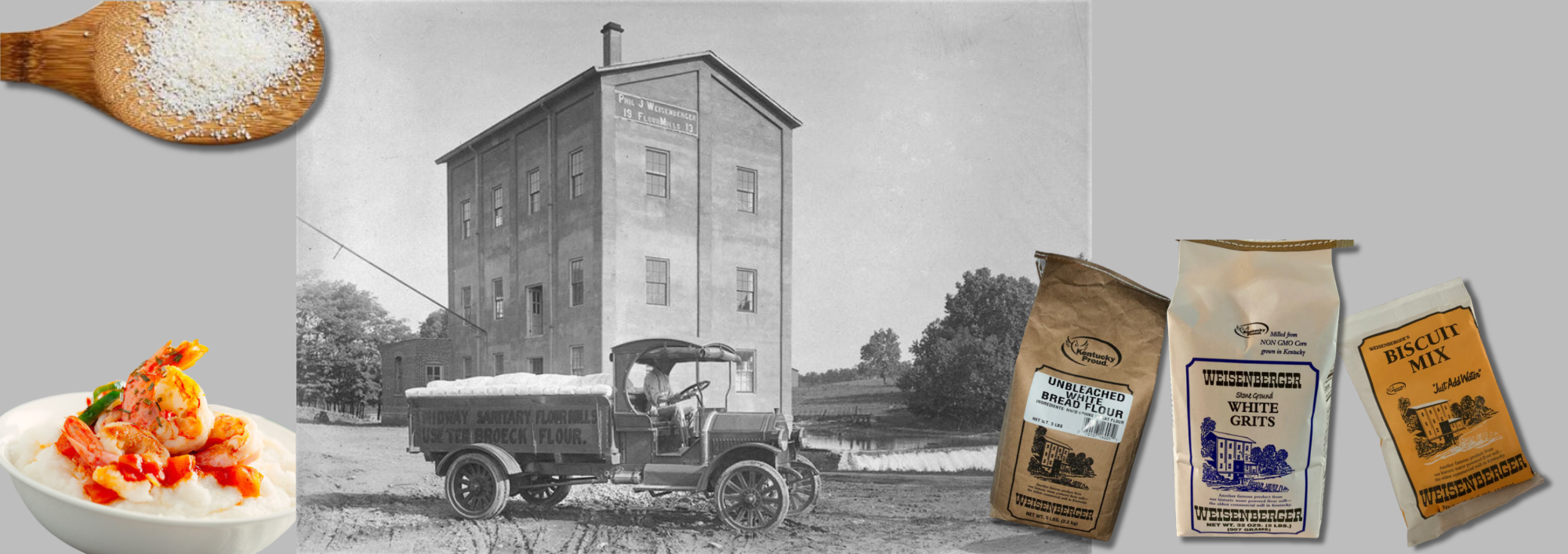For chefs who care about quality, tradition, and local sourcing, few names carry more legacy than Weisenberger Mill. Nestled on the banks of the South Elkhorn Creek in Midway, Kentucky, this six-generation family mill has been producing flour, cornmeal, and grits since 1865. We sat down with Phil Weisenberger to talk about what makes their products different—and why that still matters in a professional kitchen.
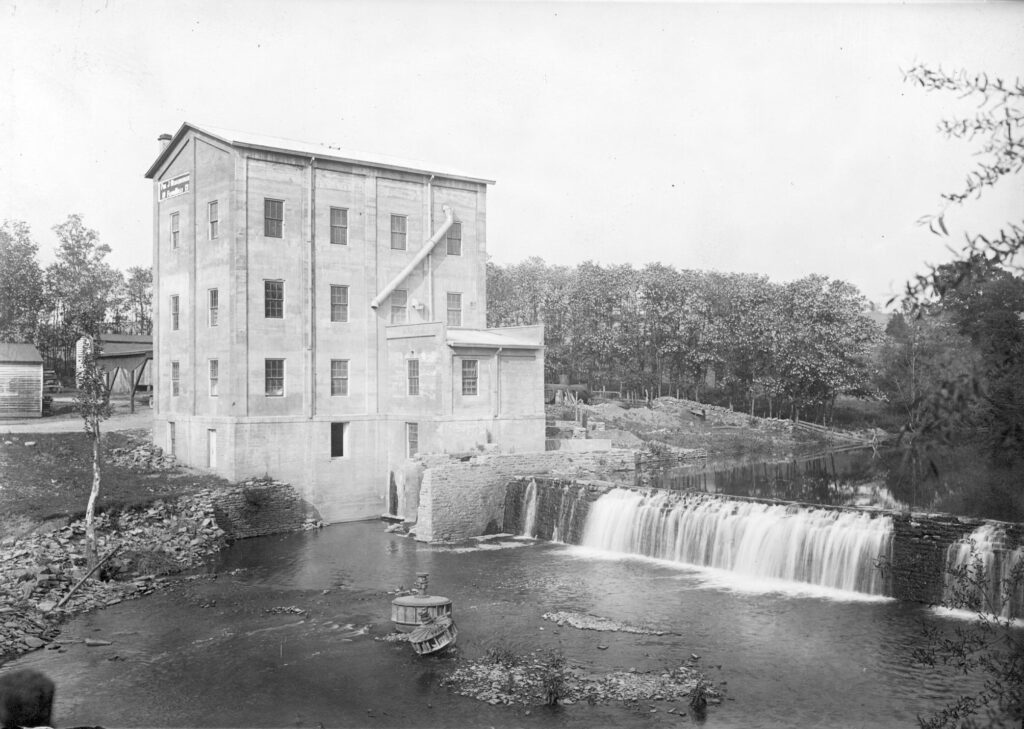
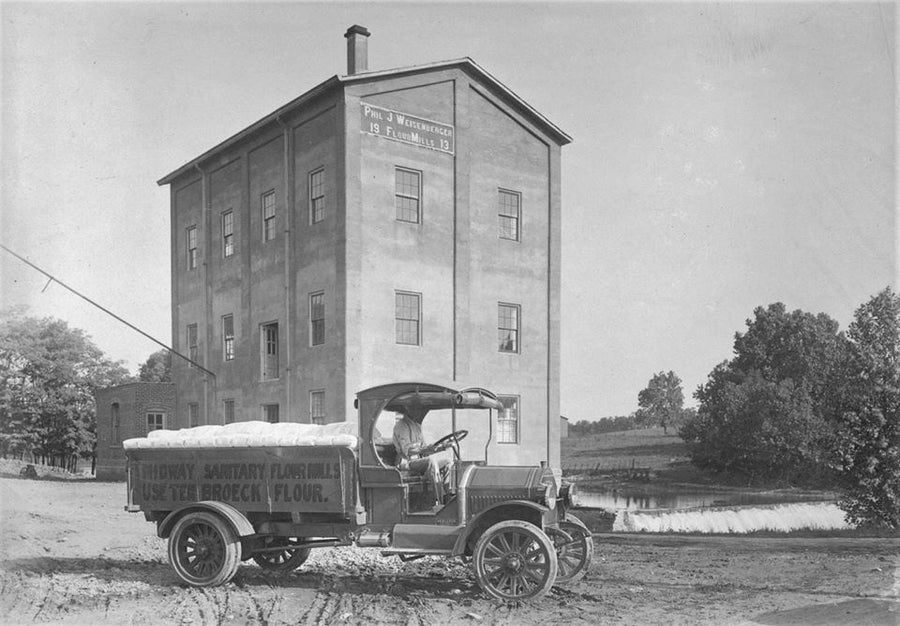
Q: Weisenberger Mill has been around since 1865. How does that kind of long-standing tradition influence the way you work today?
Phil Weisenberger:
We don’t change much. Things stay the same in a good way. We’re pretty hands-on—we’re small, so we can watch all the little details: how we’re grinding, how we’re packaging.
We buy grain directly from farmers, bring it in, clean it, grind it, and package it. Nothing’s outsourced. It’s the old-fashioned way.
Q: That kind of attention to detail—how does it translate to quality and consistency?
Phil:
That’s one of our cornerstones. We really focus on consistent quality. Over the years, that’s something I’ve learned is incredibly important. If a chef orders from us today and again six months from now, it’s going to perform the same every time.
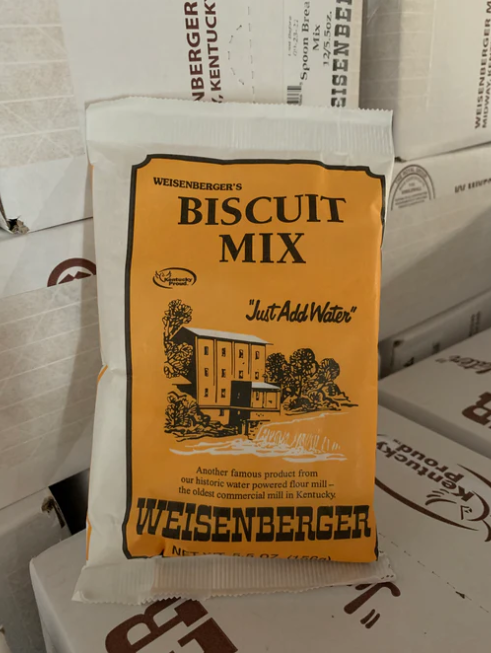
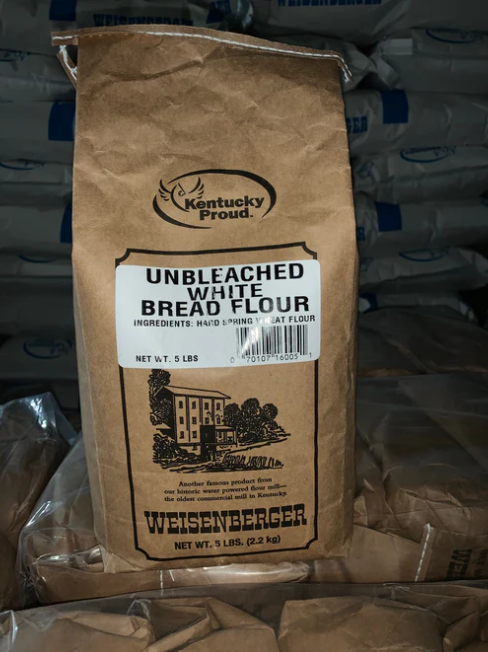
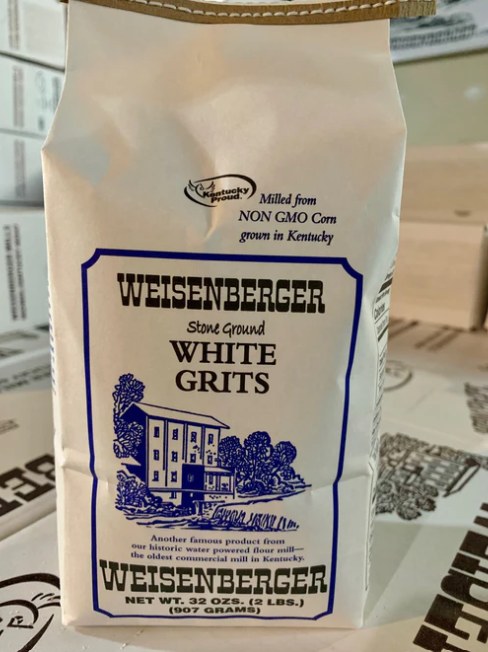
Q: What sets your products apart from mass-market options?
Phil:
Our grits are old-fashioned, not quick. They take a lot longer to make, but they have much better texture and flavor. And our cornmeal isn’t degermed like a lot of what you find in stores. Degerming makes it more shelf-stable, but it strips out nutrients and flavor.
We rely on product rotation. We don’t make massive batches and warehouse them. Orders come in a week ahead—we make them fresh and ship them out. That’s a big difference. Larger mills focus on making a lot and storing it. We focus on quality.
Q: Do you work directly with local farms?
Phil:
Absolutely. For example, we’ve been buying white corn from the same family farm for over 30 years—now we buy it from the grandson of the farmer my grandfather bought from. Most of our grain comes from within a 100-mile radius.
And beyond that, it’s all part of a bigger family operation. Many of the folks here have been with us for years. Same goes for our suppliers. Food and family go hand in hand—that’s what makes it work.
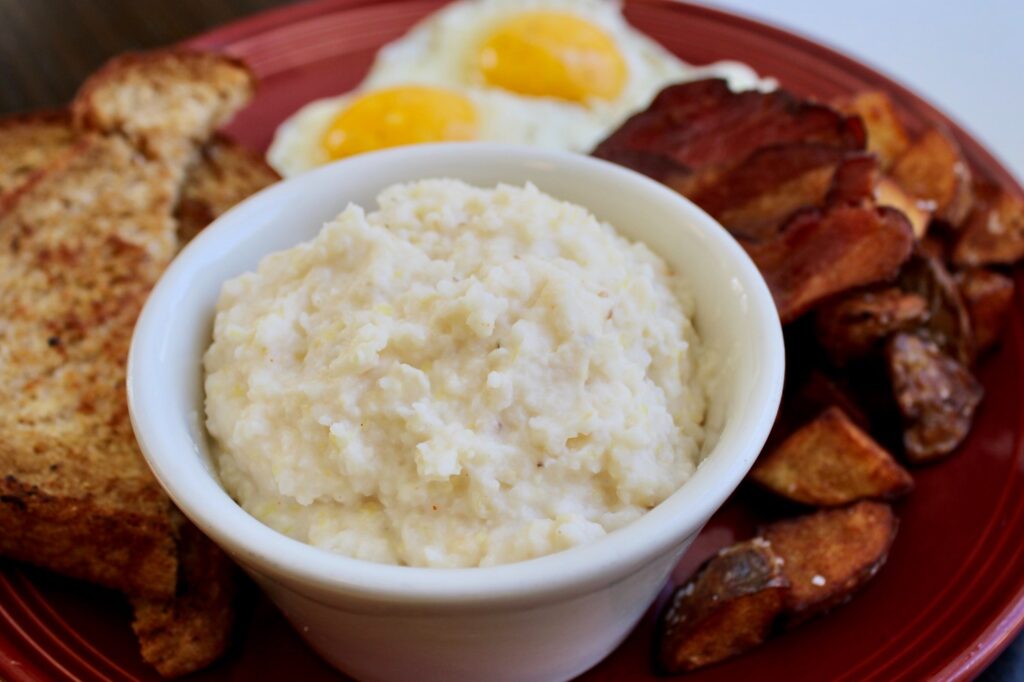


Q: Do you get feedback from chefs using your products?
Phil:
Most of our products go through distributors, like What Chefs Want, so we don’t always get direct feedback. But I save a lot of it in emails when I do hear it. I remember Alton Brown tweeted once about the best grits he’d ever had—he’d eaten at a restaurant in Nashville called Biscuit Love and wanted to know where they came from. They were ours.
When chefs put us on the menu, that’s really flattering. It’s an honor.
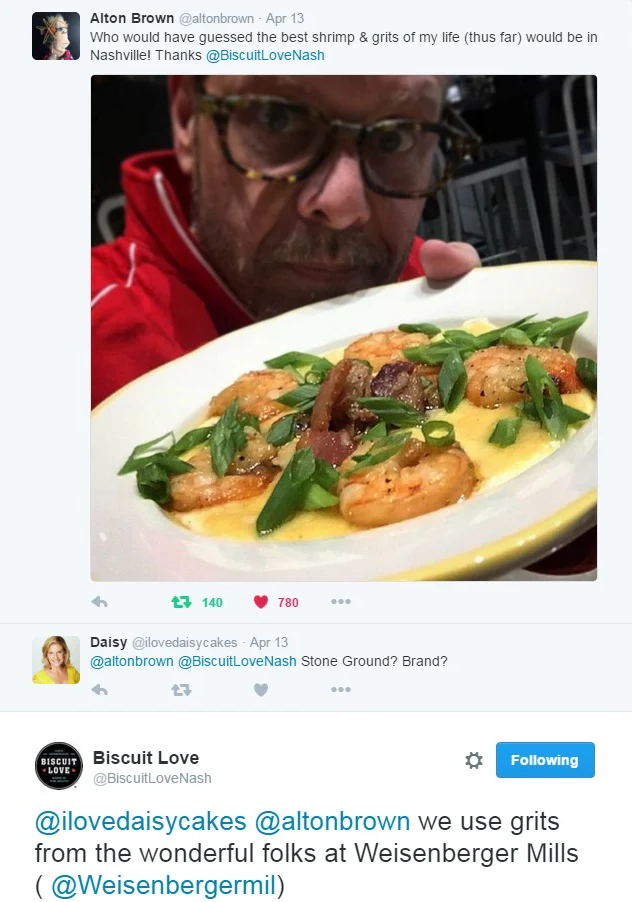
Q: You’ve been part of the mill your whole life—what keeps you going?
Phil:
I started working here when I was 12, during summer breaks with my dad. My brothers did too. When your name’s on the building, you feel a responsibility. It’s all hard work, but so is everything. You just have to choose your hard.
The best part is hearing from customers—stories like, “I remember coming here as a kid,” or, “Those grits made our Christmas dinner.” That makes it worth it.
Q: Anything else you want chefs to know?
Phil:
We’re easy to work with. If there’s an issue, we handle it fast. That matters just as much as the quality of the product. Also, we’ve been local before “local” was cool. We didn’t go chasing that—it found us. And we’re proud to be part of what chefs are doing in their kitchens.
Find these Weisenberger ingredients at What Chefs Want. Click your region below to see what is available to you, or search Weisenberger:
